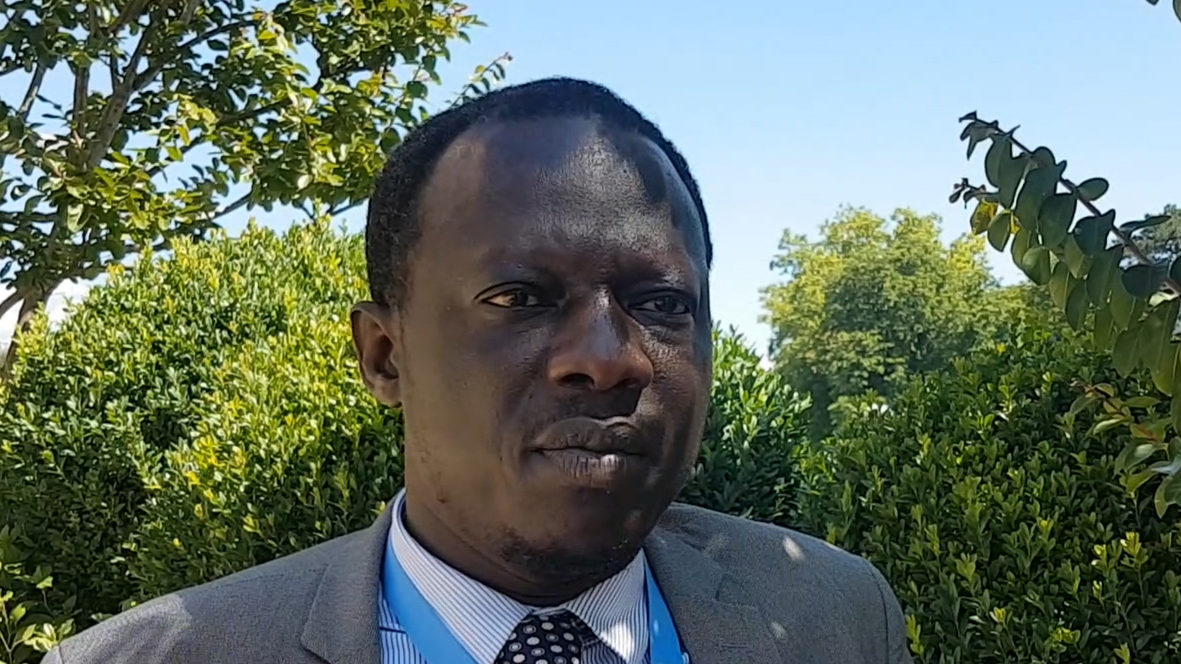Subtitles available in Russian, French, and English.
“Association and assembly enable groups, civil society, and grassroots organisations to participate in the development of their country. Without them you have something that is missing in terms of civil society capacity to contribute to the development of the country, to contribute to the rule of law, to contribute to the peaceful society.”
Clément Voule, UN Special Rapporteur on rights to freedom of peaceful assembly and of association.
These comments came in an interview with HRHF on the sidelines of the June session of the Human Rights Council (HRC38). Voule took up the mandate in March 2018, and presented his first report to the Council at the June session.
During the dialogue with the Special Rapporteur and presentation of his report, it was clear that States continue to recognise the vital importance of the mandate. Yet, for every mention of support for assembly and association, there was an almost equal warning of shrinking civil society space and the need to support civil society.
Recognising these worrying trends, the report focuses on identifying the challenges related to assembly and association, as a basis for future work.
Threats to assembly and association
The fundamental rights to assembly and association are increasingly under pressure. In many cases this is at the systematic level, with States adopting legislation that restricts the rights to assembly and association.
In its statement on assembly and association at HRC38, HRHF highlighted serious issues in Hungary, Belarus, and Russia, which exemplify negative trends affecting many countries.
Developments in Hungary are of particular concern, as documented in our report Resisting Ill Democracies in Europe. The most recent legislative proposals, dubbed “Stop Soros” by the government, threaten the use of criminal law sanctions and prison terms against individuals, including human rights defenders, who provide assistance such as legal representation to asylum seekers in Hungary.
The UN High Commissioner for Human Rights spoke out specifically against these laws during the opening of the council session:
“In Hungary, I am deeply concerned about a bill presented to Parliament last month which, if adopted, would effectively criminalise human rights monitoring at borders and within border zones, as well as criminalising the provision to migrants of information, legal aid and assistance. The bill would also eliminate or impede judicial review in many cases.”
Zeid Ra’ad Al Hussein, UN High Commissioner for Human Rights.
More than 250 organisations, including HRHF, issued a joint statement calling on the Hungarian parliament to reject proposed laws that would further restrict the ability of Hungarian civil society organisations to carry out their work.
Referring to Belarus, HRHF raised the issue of States promoting an “authorisation based system, with regulations that ban the use of public space, the participation in the public debate, and the possibility to organise and associate, without prior authorisation. This is an issue highlighted by the Special Rapporteur on Belarus.
—
More on Belarus:
- Renew mandate of Special Rapporteur on Belarus
- Belarus human rights engagement yet to bring concrete results
- True face of Belarus: Systematic repression
—
HRHF further warned that limits on access to foreign funding for human rights defenders is one of the key ways by which States retaliate against human rights defenders and their organisations, including through “foreign agents” legislation inspired from the Russian Federation
These threats to assembly and association are among the eight challenges identified by the Special Rapporteur in his report:
- Use of legislation to suppress the legitimate exercise of freedom of peaceful assembly and association
- Criminalisation, indiscriminate and excessive use of force to counter or repress peaceful protest
- Repression of social movements
- Stigmatisation of and attacks against civil society actors
- Restrictions targeting particular groups
- Limitations of rights during electoral periods
- Negative impact of rising populism and extremism
- Obstructions encountered in the digital space.
Clément Voule addressing civil society on cooperation with his mandate
Subtitles available in Russian, French, and English.
As the Special Rapporteur concludes in his report: “The full value of recommendations can only be realised if they are properly implemented at the national level.”
Resolutions
Two resolutions have been tabled at the Council session that could potentially strengthen standards relating to association and assembly, one on the right to peaceful protest, and the other on civil society space. The resolutions will come before the Council for consideration on 5 of 6 July.
HRHF will continue to report from HRC38 on these resolutions and other developments. The best place to follow us for this is on Twitter.





